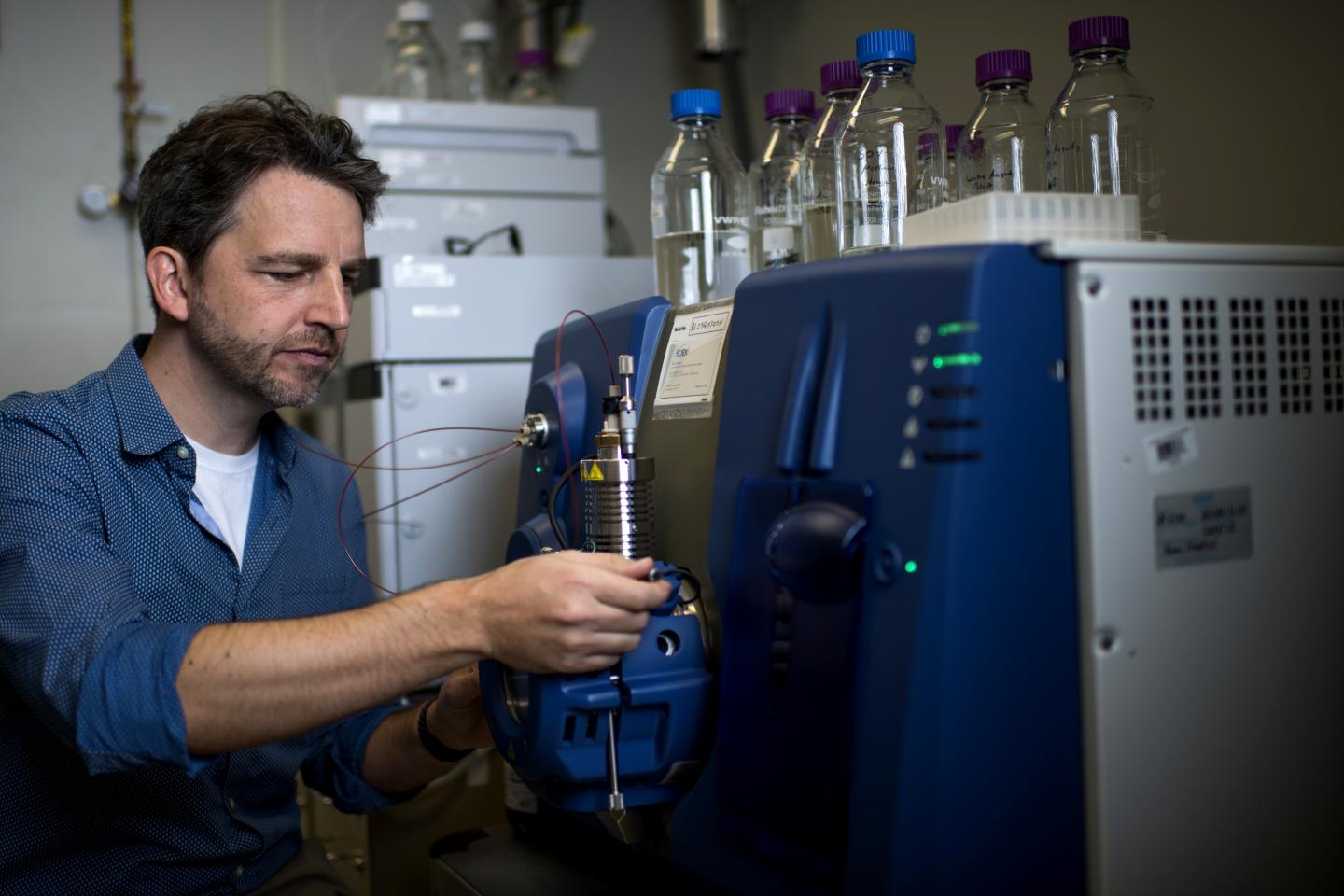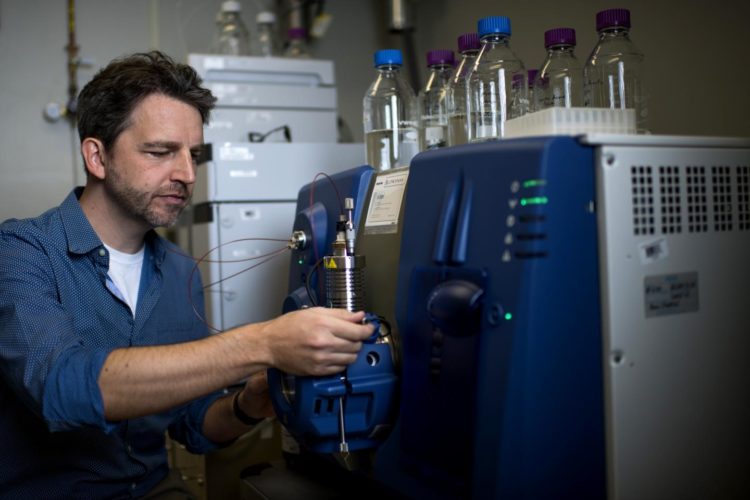
Credit: Photo by Matt Modoono/Forsyth Institute
The study, published recently in Molecular Biology and Evolution, describes the discovery that human saliva is much more watery than the saliva of chimpanzees and gorillas. And upon closer examination of the proteins within saliva, researchers found radically different protein profiles in human saliva compared with non-human primates. They believe the differences are a result of our varied diets, since human saliva is much more effective at breaking down starch and fat.
Dr. Markus Hardt, Assistant Member of the Staff at Forsyth and co-author of the study, is an expert in mass spectrometry and salivary diagnostics. His team helped analyze the protein samples from humans, chimpanzees and gorillas for the study.
“For this study, we were interested in how human evolution impacts saliva and how food sources may have influenced human development, and whether that’s reflected in saliva as well,” Hardt said.
Saliva as a window into disease
Hardt is interested in saliva composition because it may serve as a noninvasive diagnostic fluid for certain oral and systemic diseases. He contributes to the Human Salivary Proteome Wiki, a database of more than 1,000 unique human saliva proteins open to the public and research community.
In other research, Hardt is developing a new sampling technique involving a paper strip that collects tiny amounts of saliva from specific salivary glands in the mouth. This method would be ideal for people with Sjogren’s syndrome, an autoimmune disease that causes dry mouth and dry eyes in more than 4 million Americans. Very little is known about how Sjogren’s syndrome impacts individual glands because there hasn’t been a way to take such focused samples.
“This new method could give a window into looking at the individual glands,” Hardt said.
###
Media Contact
Alexandra Nicodemo
[email protected]
480-251-3144
Original Source
https:/
Related Journal Article
http://dx.





